Wyniki wyszukiwania
40 results for query Electricity market
Reports(20)
-
Ensuring reliability of the power system and capacity mechanisms

A stable and reliable supply of energy is the foundation of national energy security, yet it should not burden end users with excessive costs. On the one hand, it is important to keep electricity prices low, as they are the driving force behind economic development and provide opportunities for industrial development. On the other hand, wholesale energy prices should be sufficient to maintain the generating fleet. Since wholesale electricity prices fell to the lowest level in years, concerns have arisen over ensuring an adequate level of capacity and securing stable power system operations in Poland.
28.10.2016 -
Flex-E | How to develop the DSR potential in Poland and reduce the costs of the energy system

The Polish energy sector is entering a new phase of transformation. Planned integration of industry into the the support for energy security offers a chance to reduce by at least 1200 MW peak demand for electricity in Poland during periods of critical load od Polish Power System. this is what results from the analysis of the national potential of DSR services prepared by Forum Energii.
27.3.2017 -
Elements of new market design for Poland
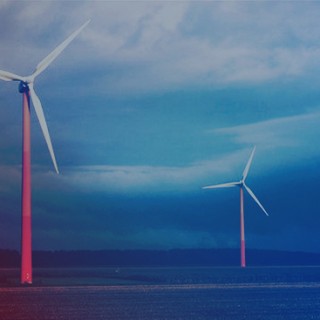
Both the European power sector at large and the Polish power sector in particular find themselves at a pivotal moment. Power systems are in transition, driven by commitments to continuing emissions reductions, growing penetration of renewables, and the need to provide affordable and reliable power.
17.12.2015 -
Risk preparedness in an integrated European electricity market

An integrated European electricity market will benefit consumers through lower prices, more cost-effective integration of renewable resources, and improved system reliability. A central question often asked in the context of the IEM is: can Poland rely on resources from neighbouring countries in a crisis situation? Is it safe to integrate market when national transmission system operators (TSOs) are responsible for managing energy systems in Europe.
2.7.2018 -
Options for integration of the Polish energy market within the European Union

Forum Energii examined how the integration of the energy market, one of the priorities of the European Union, will affect wholesale electricity prices in Poland. Depending on the option to integrate markets (with which country the merger takes place and what is its capacity), the wholesale price of electricity in Poland may fall by up to 5%, i.e. by about PLN 8 per MWh.
21.3.2017 -
Capacity market arrangements in Great Britain - lessons learnt for Poland

In 2014, the UK government introduced legal provisions for a capacity market in Great Britain. Many countries – including Poland – have since then followed the developments on the island. FAE describes the power market in Great Britain as well as measures to raise its security of supply. It also compares the volume of Great Britain’s capacity reserve with that of Poland. The goal of the project was to analyse the results of the capacity auction in Great Britain in December 2014 and to draw possible lessons for Poland in view of the special situation of the Polish power sector.
6.4.2015 -
Risk of capacity shortage in the Polish electricity system up to 2020
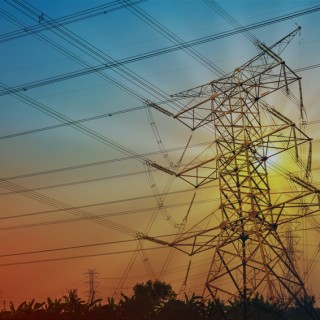
To what extent electricity shortages can be expected in the years 2016/2017? How will the reserves in the power system develop? The reserves in Poland are still relatively high, they were in 2013 at about 13 percent of the annual peak load. In 2018, the reserves will decline to about 8 percent. Assuming the so-called cold reserve, which was introduced in 2014, the reserve capacity, however, is at 11 percent in 2017. According to the provision of new generation capacity in the years 2019/2020 the reserve will increase to approximately 18 percent.
19.12.2014 -
Electricity and industrial competitiveness

Industrial competitiveness is at the centre of the Polish debate about the future (and the logic) of climate and energy policy. There is a widely held opinion that low prices are the most important condition for a thriving industry.
19.12.2014 -
Poland's Energy Policy 2040 in the spotlight

Probable delays of the nuclear energy project, insufficient attention to energy costs and the risk of non-compliance with EU climate and energy targets – these are some of the comments of Forum Energii on the draft Poland’s Energy Policy.
15.1.2019 -
Why compensations of power prices can cause more harm than good

This is the first time such an unexpected turn of events has occurred in the energy sector. The government lost control of the strategic economy sector and seems surprised with the increase in prices and rising import of coal, gas and electricity. This unexpected situation has led to huge astonishment at a time when elections are imminent.
21.1.2019 -
Flexibility of the Polish power system | Diagnosis, potential, solutions

Flexibility of the power system means its ability to maintain uninterrupted operation under conditions of rapid and huge fluctuations in electricity consumption generation. It is an inherent part of the system design and control of its operation. In the analysis, Forum Energii puts forward solutions supporting the improvement of the national power system flexibility. In addition to reducing the costs of the power sector and the improvement in quality and reliability of the electricity supply, their objective is to reduce emissions by the power sector.
12.2.2019 -
Locational market in Poland. Security of supply, costs and the impact on the energy transition

In the latest report Locational market in Poland. Security of supply, costs and impact on the energy transition, Forum Energii recommends changes on the energy market in Poland. It is a response to the emerging problems of the Polish energy transformation - high prices, ageing infrastructure, dominant share of coal. As an example, it presents the functioning of the electricity markets in the United States.
4.7.2019 -
Small steps to big changes | Impact of the "Clean Energy..." package on power sector

We are starting to implement new EU energy regulations. Will the "Clean energy for all Europeans" package heal the Polish energy sector and give it an impulse for development? How can the energy consumer benefit from the changes? In Forum Energii's report "Small steps to big changes", we analyse the provisions of the Package and their consequences for Poland.
12.9.2019 -
Energy transition in Poland | 2020 Edition

Electricity production from coal is decreasing, electricity imports are increasing; the importance of gas in the energy mix continues to grow, and renewable energy sources also play a more important role in the system. These are the key conclusions of the Forum's recent study "Energy transition in Poland". This is the third edition of the report, which presents key data on the state of the Polish energy sector and its changes.
11.3.2020 -
Energy Boost for Poland
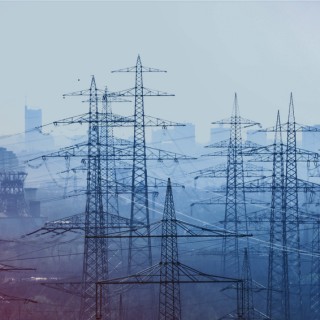
"Energy Boost for Poland" - a package for the economy prepared by the Forum Energii and Polish Confederation Lewiatan. Forum Energii and the Confederation Lewiatan call for the adoption of the "Energy Boost for Poland" package, which aims to mobilise available public and private funds for the Polish energy modernization. The implementation of the "Energy Boost for Poland" will stimulate investments worth over PLN 580 billion, which will create 240 thousand new jobs. Investments in the energy sector should be an element of the strategy for overcoming the crisis caused by the coronavirus pandemic.
11.5.2020 -
Poland: climate neutrality by 2050. Electrification and sector coupling

Electrification sets the direction of inevitable changes in many areas of our lives, including transport and heating. This direction will force a closer cooperation of various sectors of the economy with the future, completely different from today's power system. The integration of three industries — transportation, heat, and power generation— is the new concept for the operation of the entire energy sector. What can it look like in 2050? How will the necessary changes bring Poland closer to the goal of climate neutrality? Forum Energii in the new analysis convinces that a good strategy of sector coupling is a benefit for the Polish economy and society.
19.6.2020 -
Energy transition in Poland | 2021 Edition

The production of electricity from coal in Poland is decreasing. For the first time in the country’s history, in 2020 coal’s share in the generation mix dropped below 70%. Renewable sources have slowly started to play a more important role in the mix, as well as gas. In the midst of the pandemic, domestic production has fallen faster than demand, and this gap is filled by energy imports. Poland remains the most expensive electricity market in the region.
17.3.2021 -
Dynamic and just | Network tariff design for the future
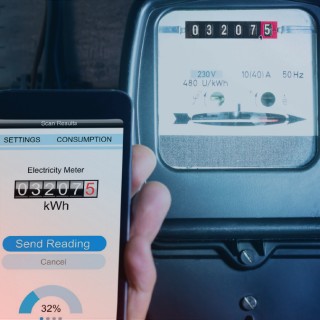
It is non-elastic, inefficient, unsuited to the changing realities of the energy market and the accelerating energy transition. The Polish model of network tariffs, i.e. the system of payments for delivering electricity to consumers, must be changed. In its latest report, Forum Energii, together with the Regulatory Assistance Project, analyses the principles that need to be considered when designing a new approach to tariffs.
6.5.2021 -
Microinstallations on a turning point | How to secure the future of distributed energy in Poland?
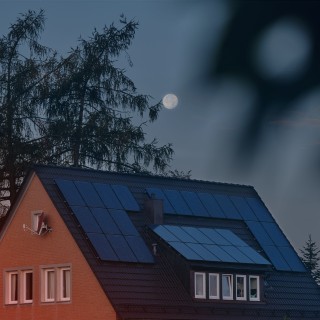
In recent years, over 600,000 households and businesses have invested in their own solar installations, and approximately 35,000 jobs have been created in companies offering services in this segment. This is the biggest, albeit unplanned, success of the Law and Justice government in the energy sector. However, further expansion of micro-installations in Poland is questionable - the government is planning changes in the rules governing this dynamically developing energy sector. This is an operation on a living organism, therefore surgical precision is needed in introducing changes - a transparent process, clear intentions and time that will allow the newly established sector and energy companies to prepare for the transition.
21.10.2021 -
Energy transition in Poland | 2022 Edition

On top of the economic slowdown in 2020 caused by the COVID-19 pandemic, 2021 was the next year when the cards dealt unexpected circumstances that diverged from the previous years of stability. In Europe, we experienced an energy crisis marked by sharp spikes in gas prices and CO2 emission costs. The wartime reality of 2022 means even more uncertainty and market volatility with energy security and independence from imported raw materials becoming the most important topics. Poland continues drifting along in the modernisation of the energy sector, as clearly indicated by data collected by Forum Energii in its annual report “Energy Transition in Poland”.
25.4.2022
Insights(19)
-
Capacity market auction results | What next?

On November 15, 2018 PSE S.A. (state owned transmission system operator in Poland) held the first auction as part of the new scheme of remunerating capacity, that is a capacity market. The auction secured 22.7 GW for 2021 for a total amount of over 5 billion PLN (over 1,2 billion EUR). The cost of the capacity scheme appears significantly higher than the 4 billion the Ministry of Energy assumed for the year.
19.11.2018 -
Polish Energy Policy until 2040 | First commentary of Forum Energii
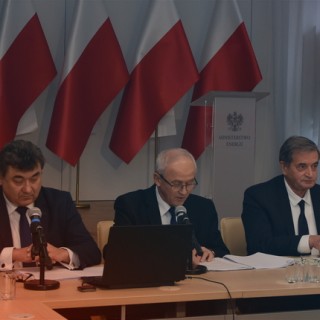
Today, the Ministry of Energy presented the State Energy Policy outline for consultation – a welcome announcement. We consider this a basis for public discussion, in which energy and environmental experts, business representatives and the broader society alike should participate. Energy affects all of our lives. Particularly at times of high energy prices we have to think about what to do next.
23.11.2018 -
How much is 550 g after the end of the European negotiations?

Negotiations on the EU regulation on the electricity market were concluded on December 19, 2018. For Poland it was the last and most controversial element of the Winter Package. Since 2017, the European Parliament and the Council discussed how to formulate regulations introducing a CO2 emission limit of 550 g/kWh of electricity produced. They are to apply to the capacity markets.
21.12.2018 -
Power sector after the elections | Three tasks for the new government

The Polish energy sector is at a turning point. What will the next government find after the elections in the autumn? It will inherit not only electricity market, but also smog.
19.6.2019 -
The last auction of this kind...

The fourth capacity market auction was held on the 6th of December 2019. Although there were some long-awaited new projects, the Santa Claus gift (which the capacity market support could be) was offered primarily to the existing coal-fired units, which in most cases decided to modernize. They were allowed to participate in the auction for the last time, as the European Union regulations will not allow such participation from next year.
11.12.2019 -
RES auctions in Poland | Results and trends

The RES auction marathon is behind us and we finally know the final result. Twelve auctions for various technological baskets, for new and existing installations, were held during three weeks. The contracted 90.3 TWh of new, green electricity for 15 years is worth PLN 20.2 billion. As much as 86% of this volume will be purchased at prices lower than those currently prevailing on the wholesale electricity market. This is another proof that renewable energy sources can compete with conventional units without additional support.
23.12.2019 -
Fighting on the wrong front. Polish gvernment intends to subsidise energy consumption instead of fighting energy poverty

The Ministry of State Assets announces subsidies to energy bills for people earning less than 5 000 net per month. The reaction to the increase in electricity prices in Poland has shown that politicians are so afraid of this subject. However, they have no good idea how to solve it.
3.3.2020 -
Will the coronavirus slow down or speed up the low carbon energy transition in Poland?

The world is in chaos. The priority is to stop the spread of the virus and contain the crisis. A stable energy supply is crucial - it's hard to imagine what would happen if there was no power or heat supply now. The million dollar question however, how will the current crisis affect the energy transformation in the long term?
21.3.2020 -
Investment in the energy sector as a remedy for the crisis

After a few weeks of the pandemic in Poland, we know for sure that the virus will infect the economy, even as we finally get rid of it ourselves. We need to act decisively right now. But we also need to think about economic recovery, in which the low-carbon transformation of energy has to take a central place. This is the time for bold decisions, so far postponed. A strategic rebuilding of the sector must be announced today to help society emerge from the crisis and provide long-term benefits.
1.4.2020 -
The EU is ready to co-finance our energy transformation ― what does the Polish government have to say?

On 17 July the European Council will launch the final negotiations on the EU budget, unprecedented in scale and intended to pull the EU out of recession and give it a new boost. Since December 2019 Poland has been part of the EU discussions, trying to distance itself from climate neutrality in 2050. Although all other Member States agreed to it. For the time being, however, it seems that we may be one of the countries that will benefit most from the distribution of funds―we may gain over PLN 140 billion for the energy transition alone. Yet, the money will not be granted unconditionally. Poland needs to have a plan in place to achieve the EU's common goals―to commit to climate neutrality and to contribute to a 40% or even 55% reduction in emissions by 2030.
15.7.2020 -
Renewables in the Polish energy mix. Still not enough to meet the targets

The energy transformation has accelerated significantly. Thanks to the enormous cost reduction of solar PV and onshore wind, these technologies are increasingly being chosen by the private sector and households as an investment that allows for significant savings. In recent years, however, the development of renewable energy sources (RES) has depended on state policies and support schemes. They were to enable Poland to achieve the so-called RES target - renewables were to account for 15% of gross final energy consumption in 2020[1]. According to our estimates, the target is still far from being achieved - in 2019 the share of RES amounted to 11.5% only and everything indicates that this year too, the result of 15% is out of reach.
23.7.2020 -
Obligation to sell electricity on power exchange―no time for sudden moves

The Ministry of Climate and Environment have announced its plans to abolish the obligation to sell electricity on power exchange by generators, a so-called ‘obligo’. A public consultation on the proposed law is underway. The topic seems technical and niche. But the effects of the planned changes will be widespread: with the electricity market not very competitive, the abolition of the obligation will increase wholesale prices and have a negative impact on consumers―mainly industrial ones. This is a step backwards in terms of competition and transparency of the electricity market in Poland.
24.2.2021 -
NABE - the hibernatus of the Polish energy sector

In the film with Louis de Funès, a separate, unreal world was created for the titular hibernatus to make him feel comfortable in the new reality. With the National Energy Security Agency (NABE) that the government is proposing for coal power, it is similar. The ring-fencing of coal assets is necessary because they are making increasing losses, the power companies are in debt, and with the coal burden in the new reality they are running out of finance to invest. However, without a cost-benefit analysis for the economy and society, or an assessment of the risks, NABE, instead of unlocking the transition, may hibernate it and introduce chaos that will threaten Poland's energy security.
28.6.2021 -
From 2025 coal will leave the Polish energy system in waves

Poland’s energy sector is entering a period of major turbulence. The immediate question is the continued operation of the Turów power station since the EU Court of Justice recently ordered the suspension of lignite mining there. This is just the beginning of the problems. After 2025, when public support ends, the first 8 GW of coal capacity may leave the Polish system, and a little later, another 6 GW. The power plants will be shut down due to age and costs. Observing the government’s actions, one can get the impression that all hope lies in the proposed National Agency for Energy Security . Yet, this is a side discussion because no change in ownership structure will improve the situation of the failing coal power industry. Instead, difficult decisions must be made, and the possibilities of supporting the operation of coal-fired power plants with public money are already very limited.
27.7.2021 -
10 steps to overcome the energy crisis

The prices of coal, gas, and CO2 are reaching record levels while the price for electricity is galloping, causing panic among politicians, energy consumers, and institutions responsible for maintaining Poland’s energy security. There is a state of emergency in the Polish energy sector caused by, among other things, the situation on the energy source market, but not only. The country is also bearing the consequences of many years of postponing necessary modernisation decisions. It is time to take urgent actions that match the situation.
8.12.2021 -
The capacity market in Poland―more expensive than ever

Poland has already held six power auctions. Analysis of their results shows that this mechanism in its current form is not an optimum solution for the country. The capacity market has proved more expensive than anticipated, has failed to curb the increase in electricity prices and, in addition, has contributed to the petrification of the outdated and coal-based generation structure. The arduous task of plugging the coal gap has only just begun, which is why decisions on modernisation and on methods for supporting capacity up to 2030 must be taken urgently.
13.1.2022 -
Ukraine's Power System: Peace and War
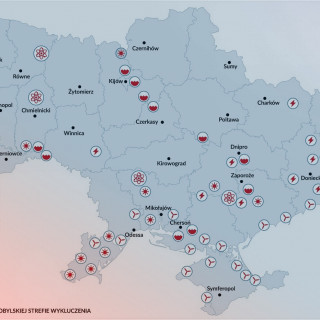
On 16 March, Ukraine was synchronised with the electricity grid of continental Europe, bidding a permanent farewell to the systems of Russia and Belarus. The connection took place in an urgent and emergency procedure. This is an important step towards sustainable cooperation with the European Union. But today, in Ukraine, there is first and foremost a warfare, as well as an energy war, which is no less important for the lives of the civilian population of Ukraine and Europe as a whole.
17.3.2022 -
Is the Kremlin turning off the gas tap? Time to exclude gas and coal from households
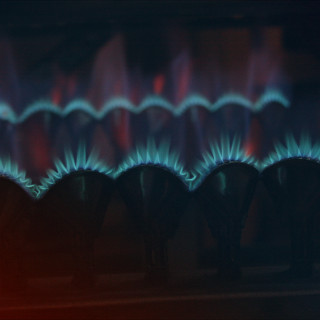
How to prepare households for an energy war with Russia? Gazprom is suspending gas supplies to Poland under the Yamal contract. This is no great surprise. At the end of this year, Poland was going to give up buying Russian gas anyway. Physically, there is unlikely to be a shortage of gas, but Poland is entering a period of high prices, which will limit the use of this raw material. The role of the state should be to wisely support society in smoothly passing through the crisis. Without reducing demand in sectors where it is possible, this will be difficult.
28.4.2022 -
Electricity market design: one size won’t fit all

The energy crisis has highlighted imperfections in the EU power market. The current rules were created almost 30 years ago with the aim to incentivise large conventional power plants, but they now need to be adapted to new challenges.
17.2.2023
Events(1)
-
Conference | Flexibility of the Polish power system | Reform of the energy market
6.6.2018 CZIiTT, Politechnika Warszawska ul. Rektorska 4, Warszawa
On June 6, 2018, Forum Energii in partnership with the CZIiTT of the Warsaw University of Technology organized the conference dedicated to flexibility of the power system in the context of the expected changes of this sector in Poland.